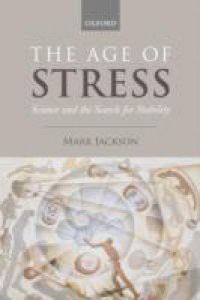We are living in a stressful world. Despite our familiarity with the notion, stress remains an elusive concept. In The Age of Stress, Mark Jackson explores the history of scientific studies of stress in the modern world. In particular, he reveals how the science that legitimates and fuels current anxieties about stress has been shaped by a wide range of socio-political and cultural, as well as biological, factors: stress, he argues, is both a condition and ametaphor. This approach is not designed or intended to deny the reality of stress in peoples lives, or to undermine the validity of scientific investigations. Rather, Jackson suggests that if we are to comprehend the ubiquity and impact of stress in our own times, or to explain how stress has commandeered such a central place in the modern imagination, we need to understand not only the evolution of the medical science and technology that has gradually uncovered the biological pathways between stressand disease in recent decades, but also the shifting political and cultural contexts that have invested that scientific knowledge with meaning and authority. In particular, he argues that we need to acknowledge the manner in which our obsessions with the relationship between stress and disease are theproduct of broader historical concerns about the preservation of personal and political, as well as physiological, stability.

